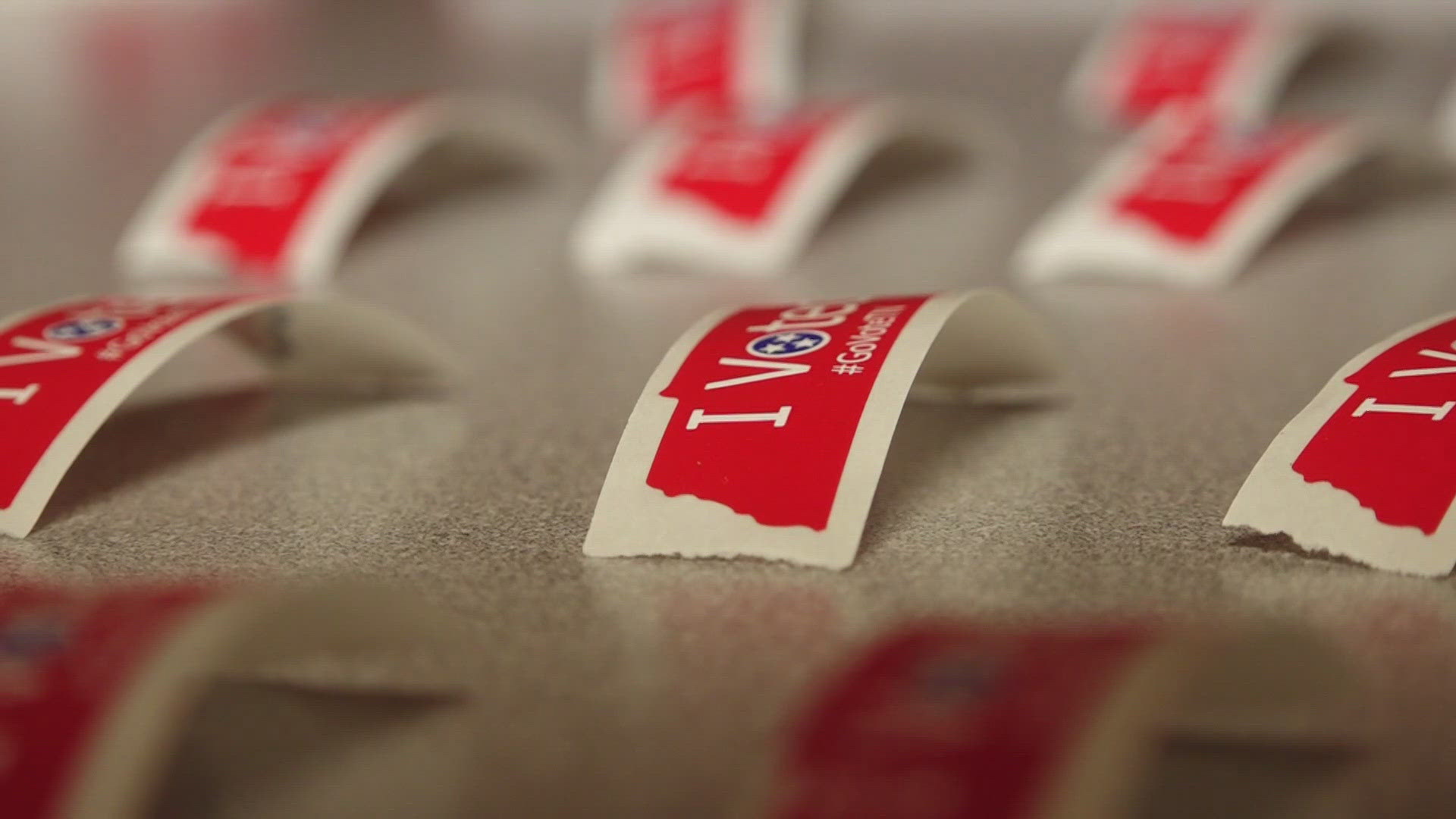KNOXVILLE, Tenn. — Early voting is underway right now, with only 13 days left until Election Day. It can be hard to ignore, especially with all the political ads broadcast on television.
WBIR has had plenty of questions from viewers asking about these ads, how they're chosen, and if they're censored.
First, it's important to understand where those ads are coming from. There are two sources. First, they could be coming directly from the candidate. Those usually are focused on saying why one candidate is the right choice or why another is the wrong choice. The other type of ad is one created by a political action committee and it usually focuses on a specific issue.
“You're just going to see a slew of ads up until now until election day because you're trying to make sure that those candidates' names are in the voter's mind,” said Mark O'Gorman, a Maryville College political science professor.
As O’Gorman explains, ads are a good way for broadcast companies to make money by selling 30-second or one-minute “spots” on TV.
"This, right now, is usually a pretty good revenue time for local media because the campaigns are actually selling the ads and local media are picking up those ads,” O’Gorman said. “So it's as much a revenue generator as anything.”
Michael Martinez, an assistant professor of practice at the University of Tennessee’s School of Journalism and Media, said there are rules to follow.
“If you're going to offer one candidate, or allow one candidate to advertise, you have to allow any of the other … viable candidates,” Martinez said. “To be a viable candidate, you know, there's a whole set of criteria: you have to be a resident, you have to have so much in the polling and raise 'x' amount of money and that kind of thing.”
As for the content of these ads, “They pay for the time and they pay for the space and they can put whatever they want to out there,” Martinez said.
As Martinez explains, national networks and local stations don't get to choose what those ads say — even if they're factually incorrect. The only way a broadcast company can censor that information is if the content isn't protected speech in the first place.
“You might be able to say 'no' if you're accusing somebody of, I don't know, something pornographic or obscene, you could probably deny that,” Martinez said. “But other than that, no. I mean, they're in control of their content.”
It's why both professors say fact-checking what you see is more important than ever.
“The problem that we're running into, and this is kind of society-wide, is we're so used to getting a headline or a tweet/X or whatever you want to call it and nobody's going any further — nobody's following it back to who said it. What the source is, how credible is the source? And is it real or is it some bot somewhere spreading misinformation or disinformation?” Martinez said. “That's how things get spread. Somebody likes it. Somebody shares it, somebody starts spreading something that is not accurate and it goes viral. Pre-internet, that wasn't kind of that common.”
O'Gorman also said voters should take steps to make sure what they see on social media and on television is true.
“There are few (other) acts that citizens can do to validate American democracy than vote,” O’Gorman said. “But truly voting is the one thing every citizen who can vote is allowed to do. And if you can be that active voter, that activated voter to research the information to find out what's going on, then you become the person that ideally we hope makes American democracy work.”
WBIR strives to be transparent about the content it airs. Its sales department runs completely independently from our news department.
“Colloquially we call it separation of church and state,” Martinez said. “The advertising department generates revenue for a television station or a network … and the reason they're separate from the editorial department is that there should not be any influence on the editorial content — what you report, how you report, who's doing what, what you're going to cover, what you're not going to cover.”
Martinez adds that in, “any kind of legitimate, unbiased journalistic enterprise, the business side is separate from the editorial side and they don't mix.”
That is how WBIR operates, with the news department and sales department running completely independently from each other.
We did reach out to WBIR’s Director of Sales Tara Midkiff, who said there is an approval process she goes through to make sure the advertisements meet FCC approval guidelines.
If they do, Midkiff said WBIR airs it and does not get to independently decide what advertisement airs.
"A spot can be challenged by the competitor,” Midkiff said. “They need to provide why the spot should be pulled, what is false information, etc. At that point, all info is provided to our legal team, and they decide."
Along with the importance of fact-checking information, Martinez stressed the importance of having an “open dialogue with somebody.”
“Even if you disagree with them, at least hear them out,” Martinez said. “Maybe there's something there that you might agree with. And it's ok to disagree. Agree to disagree but carry on the conversation. Don't just ignore somebody from the other side for the sake of that they're from the other side.”

